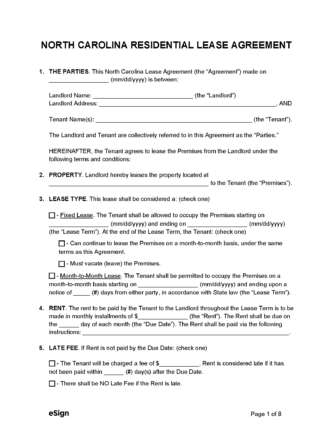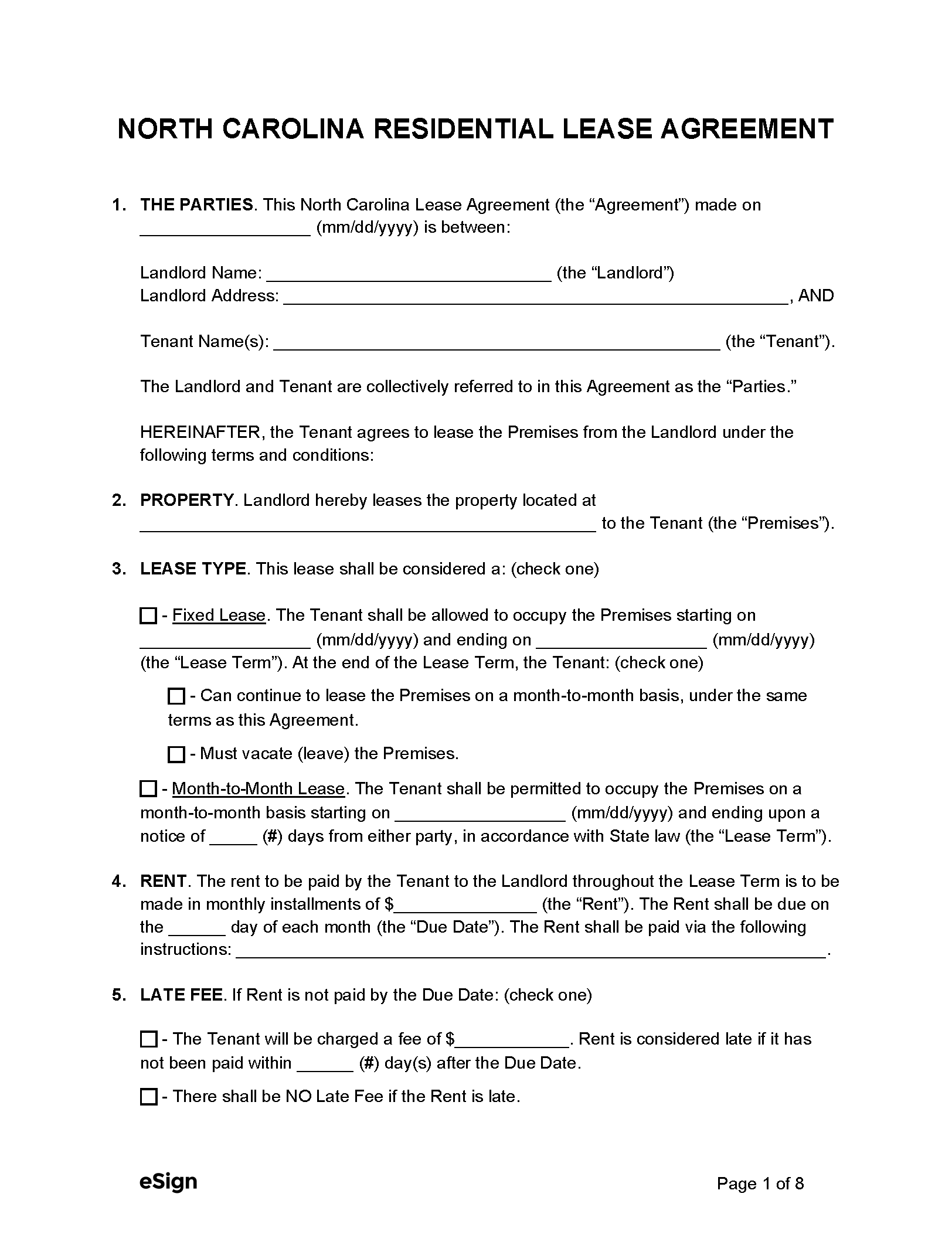Lease Agreements: By Type (6)
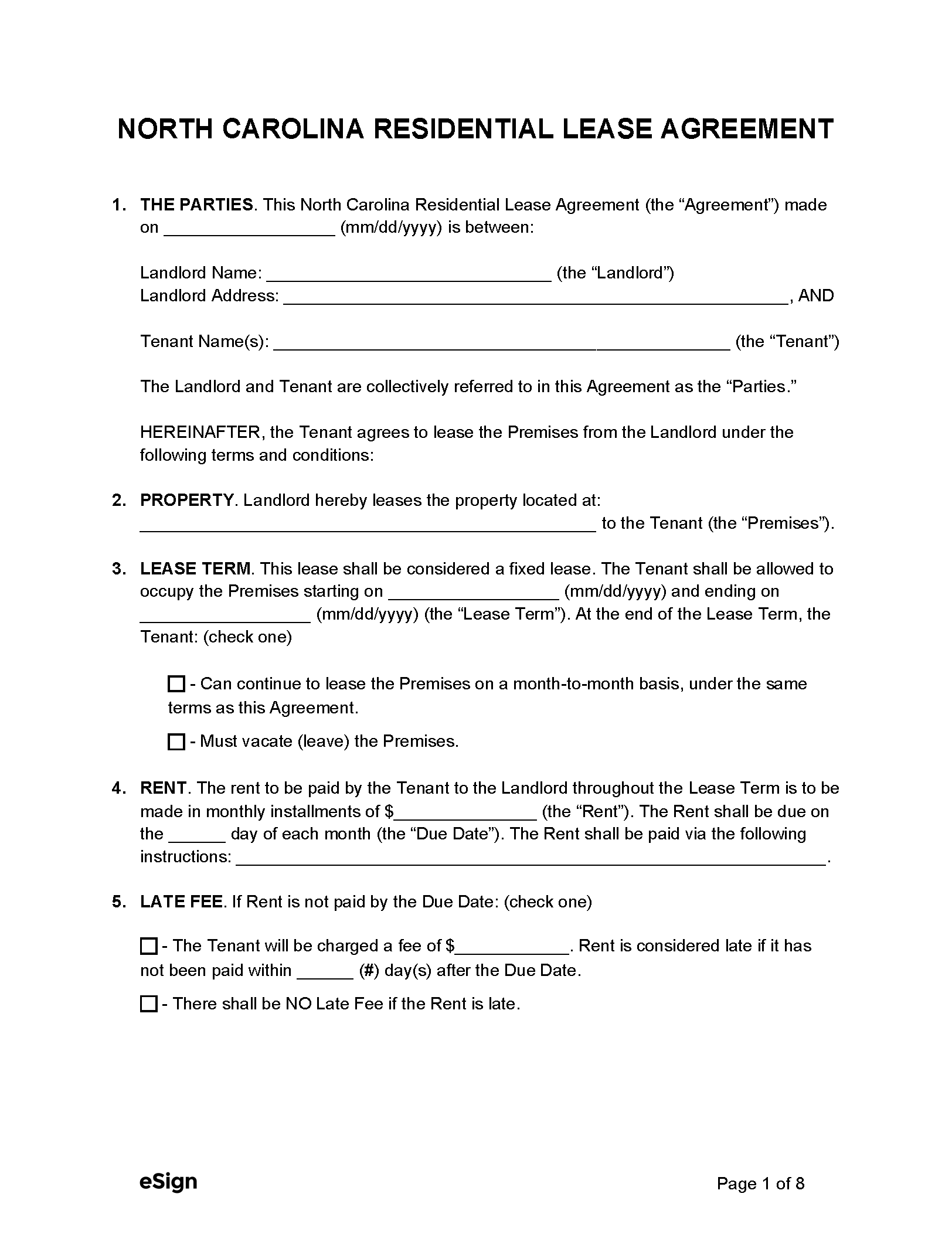 Standard (1-Year) Lease Agreement – A standard residential lease is a rental agreement that expires after one year. Standard (1-Year) Lease Agreement – A standard residential lease is a rental agreement that expires after one year.
Download: PDF, Word (.docx), OpenDocument |
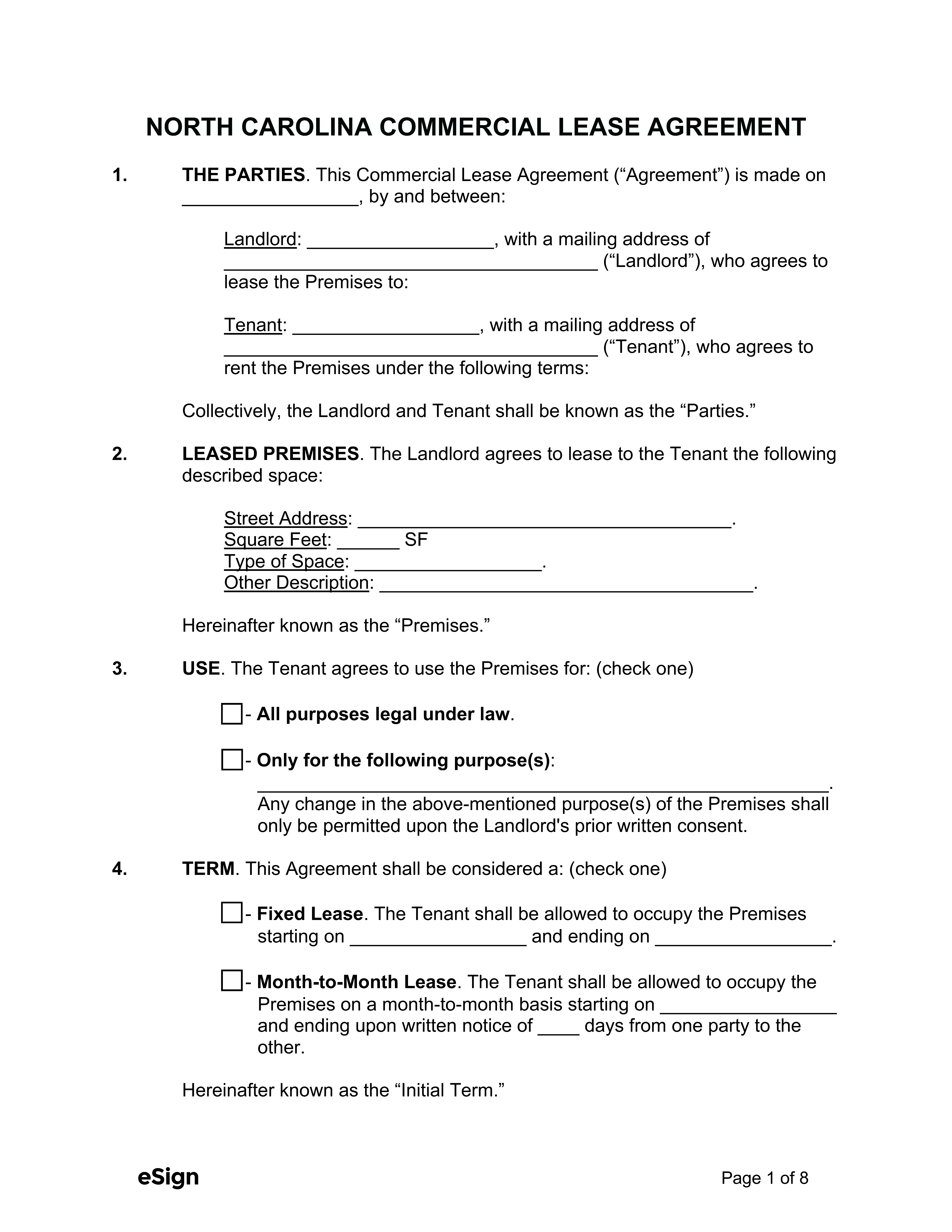 Commercial Lease Agreement – This contract is used for the rental of commercial property by an individual or business. Commercial Lease Agreement – This contract is used for the rental of commercial property by an individual or business.
Download: PDF, Word (.docx), OpenDocument |
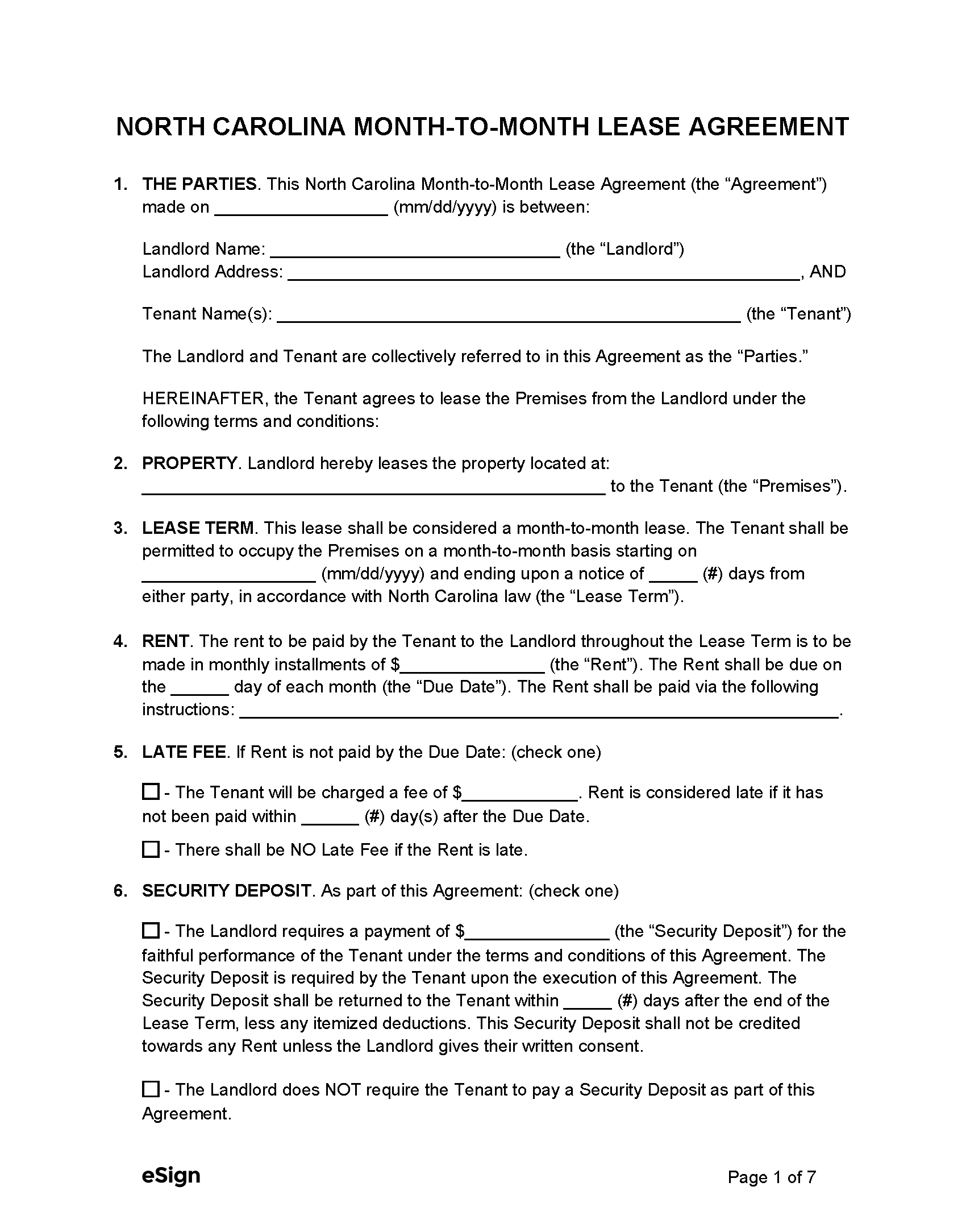 Month-to-Month Lease Agreement – Also known as an “at-will” rental agreement, the tenant renews this lease with each monthly payment. Month-to-Month Lease Agreement – Also known as an “at-will” rental agreement, the tenant renews this lease with each monthly payment.
Download: PDF, Word (.docx), OpenDocument |
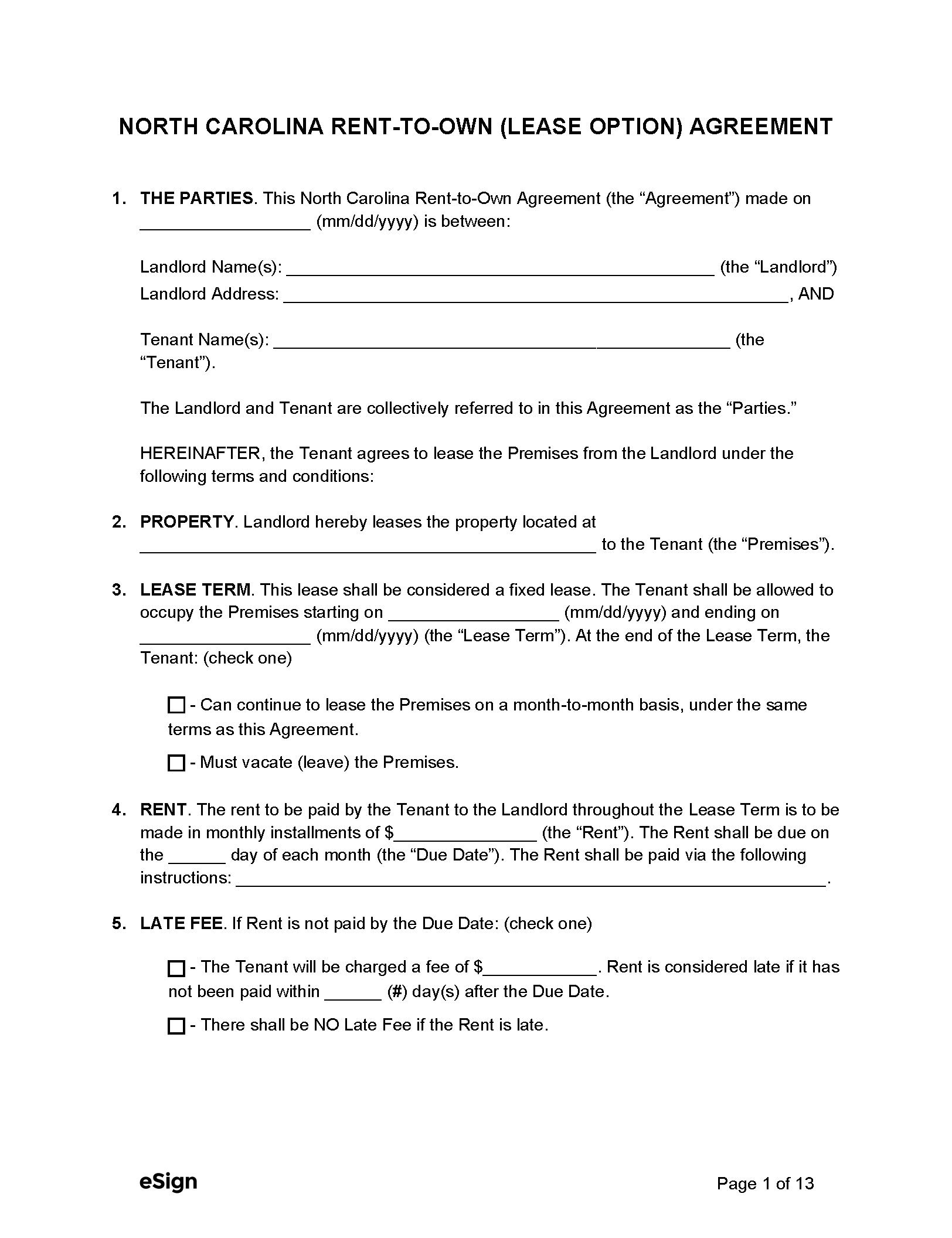 Rent-to-Own Agreement (Lease Option) – A contract that outlines the rental terms for a piece of property while providing purchasing options to the tenant. Rent-to-Own Agreement (Lease Option) – A contract that outlines the rental terms for a piece of property while providing purchasing options to the tenant.
Download: PDF, Word (.docx), OpenDocument |
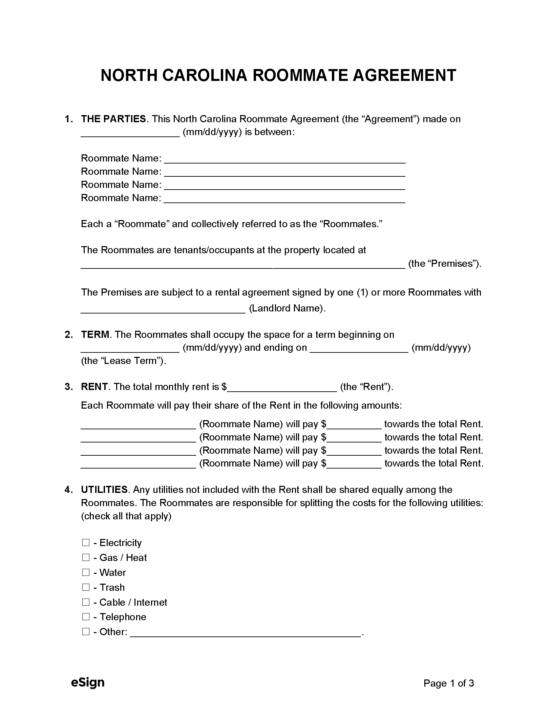 Roommate Agreement – This document outlines the terms by which roommates agree to divide rent, utilities, and chores. Roommate Agreement – This document outlines the terms by which roommates agree to divide rent, utilities, and chores.
Download: PDF, Word (.docx), OpenDocument |
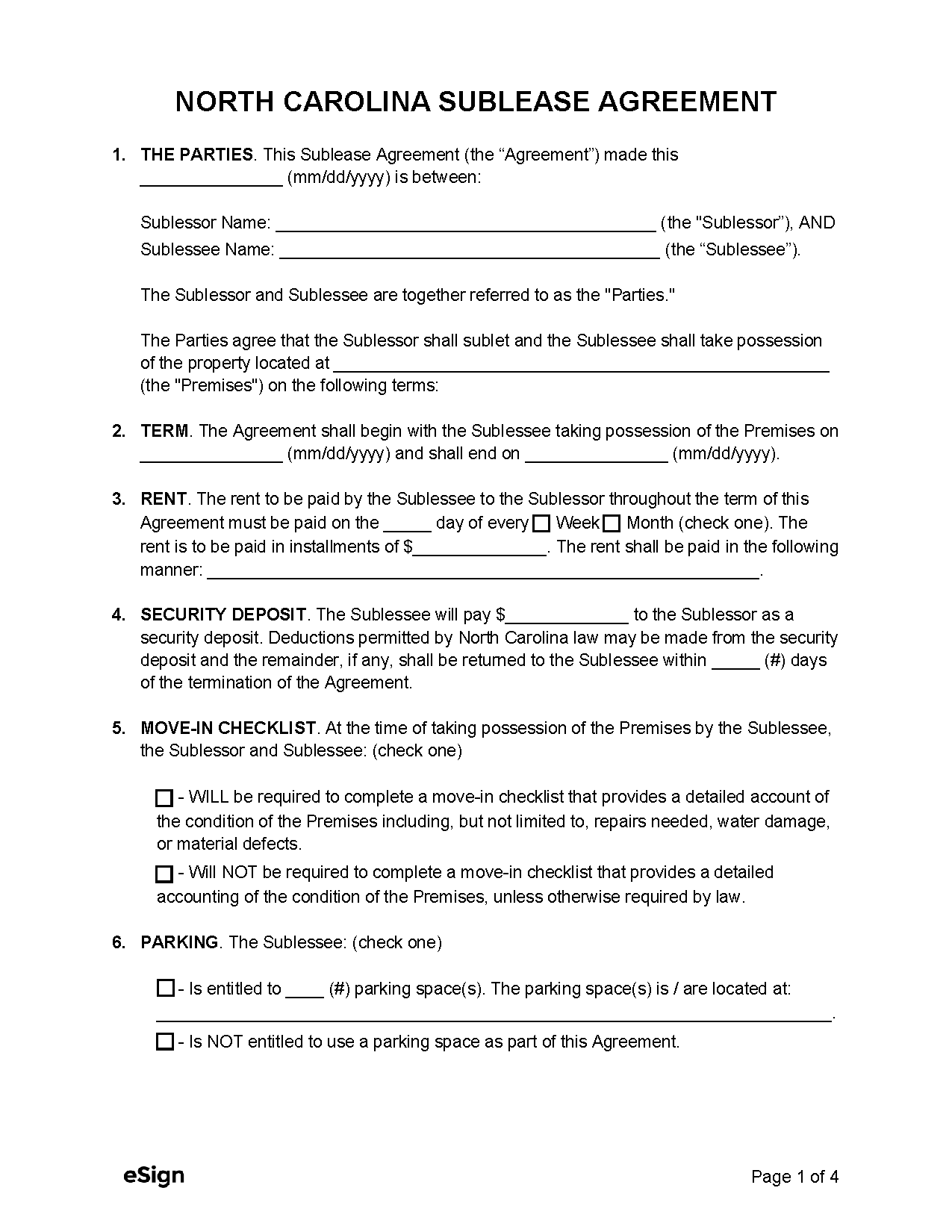 Sublease Agreement – Tenants can use this contract to rent out part, or all, of their rental space to a subtenant. Sublease Agreement – Tenants can use this contract to rent out part, or all, of their rental space to a subtenant.
Download: PDF, Word (.docx), OpenDocument |
Required Disclosures (2)
- Lead-Based Paint Disclosure (PDF) – Used to notify tenants of the presence of lead-based paint on the premises of pre-1978 housing.[1]
- Security Deposit Disclosure – If the tenant is required to pay a security deposit, the landlord must, within 30 days of the start of the lease, disclose to the tenant the name and address of the financial institution where the security deposit is stored. If the deposit is maintained as a bond, the landlord must instead provide the name of the insurance company that provided the bond.[2]
Security Deposits
Maximum Amount ($) – Two months’ rent is the most that landlords can charge for security deposits on a standard lease. For month-to-month tenancies, one and a half months’ rent is the maximum amount.[3]
Collecting Interest – No state law requires a landlord to collect interest on the security deposit on behalf of the tenant.
Returning to Tenant – After the termination of their tenancy, security deposits must be given back to the tenant within 30 days.[4]
Itemized List Required? – Yes, the landlord must provide the tenant with a written list of any deductions from the security deposit.[5]
Separate Bank Account? – Yes, the landlord must keep the security deposit in a trust account or furnish a bond from a state-licensed insurance company.[6]
Landlord’s Entry
General Access – While not legally required, a landlord may choose to use a notice to enter to notify the tenant that they will enter the premises.
Immediate Access – There is no statute that prevents landlords from accessing their real estate whenever they please and without notice.
Rent Payments
Grace Period – Five days must pass before the landlord can charge fees for unpaid rent.[7]
Maximum Fees ($) – The most that a landlord can charge tenants for late fees is $15 or 5% of the rent, whichever is greater. If rent is paid weekly, the maximum amount is $4 or 5% of the rent, whichever is greater.[8]
Back Check (NSF) Fee – Landlords may charge a $35 fee if a tenant’s check bounces.[9]
Withholding Rent – Tenants may not withhold rent in an attempt to force the landlord to make repairs. If the landlord fails to make the repairs requested by the tenant within a reasonable amount of time, the tenant may file a lawsuit.[10]
Breaking a Lease
Non-Payment of Rent – If a tenant is late on their rent, the landlord may give them a 10-day notice to pay their rent or leave the property.[11]
Non-Compliance – North Carolina law does not specify any eviction notice requirements for tenants who breach the terms of their rental agreement. Landlords may furnish them with a notice to quit for violating their lease, demanding that they vacate the premises.
Tenant Maintenance – The landlord must inform the tenant in writing of any failure to maintain their rental unit.[12]
Lockouts – Tenants may only be forceably removed or excluded from the premises with a court order.[13]
Leaving Before the End Date – The landlord must make a reasonable effort to re-rent the property in order to mitigate damages if the tenant leaves prior to the end date of the agreement.[14]
Lease Termination
Month-to-Month Tenancy – A 7-day notice to quit may be used by either a landlord or a tenant to terminate a month-to-month occupancy.[15]
Unclaimed Property – If the tenant abandons belongings that have a value of less than $750 and 10 days have elapsed since the tenant left, the landlord may deliver them to a nonprofit organization.[16] If the tenant is evicted and the property is valued at $500 or less, the landlord may dispose of the property after 5 days with a writ of possession.[17]
